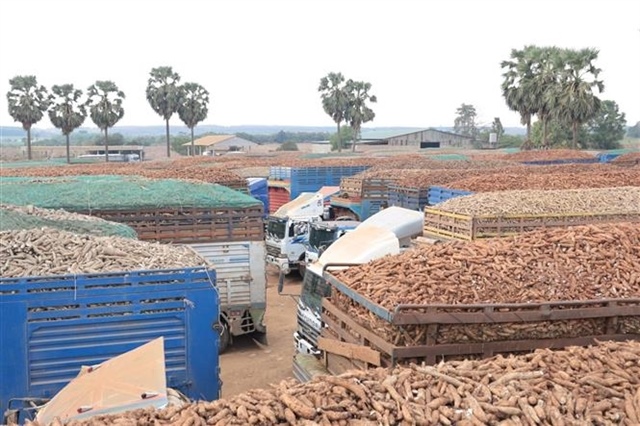Rubber farmers haven't made profits in 3 years
Rubber farmers haven't made profits in 3 years
Farmers in the provinces of Lai Chau and Quang Nam complained that they have not earned any profit from rubber plantations since 2012, and experts warn that further unsustainable development would extract a larger toll on the nation's forests.

Speaking at a conference held in central Quang Nam Province on Tuesday, farmers who contracted with rubber companies to develop rubber plantations on their lands said they wanted to cancel their contracts.
In 2008, the government singled out large swaths of land in the two provinces for rubber development and encouraged locals and companies to work together. Most of the land, however, was located in the provinces' delicate forest buffer zones.
Such a move was made possible by a law issued in 2004 that allows buffer zones near communities to be handed over to locals for protection and forestry development. Many forest buffers around the country have since been signed over to residents, but either farmers or local authorities have, in turn, signed over the land to developers that endanger these forests.
In Quang Nam and Lai Chau, rubber companies contracted with locals to use their lands in exchange for covering start-up costs such as buying and planting the trees, fertilizers, labour protection equipment and other required technology. Forty per cent of profits would go to farmers and the rest would go to the companies.
The contracts also required that the land-owning families be hired, in addition to their cut of the profit, to undertake fertilizing, grass killing and rubber collection.
Tao Van Chen, chairman of Nam Tam Commune in Lai Chau's Sin Ho district said that since 2012, each family in the commune earns at most VND500,000 (US$23) a month from daily rubber collection work. This small sum of money means next to nothing to a family budget.
"The amount is too small to support the life of a family," Chen said.
Coor Vom, a resident in Cha Val Commune in Quang Nam's Nam Giang District, said, "Profits from the rubber have been at zero for year, so we don't want the rubber trees anymore."
The rubber companies said falling prices in world rubber markets caused significant cuts to profits. This, they said, is why farmers have received no profits. Farmers suspected the companies of falsifying the revenue numbers before announcing them.
"We demanded clear information about the price of rubber and the profits, but they never replied," said Nguyen Thi Huong from Dong Ran Commune in Nam Giang District.
"Now we want dividend on product, no more on profit," she said, adding, "We must stop working every day for nothing."
Huong said that, in her commune, the contracts were never signed by the residents, but by commune authorities and companies. This further complicated farmers' negotiating power.
Experts are also increasingly worried, warning on Tuesday that low incomes from rubber production could lead to more encroachment on core forestlands for agriculture production.
"Lands used for rubber production was originally used for agriculture cultivation or as forestlands granted to nearby residents," said Tran Huu Nghi of Tropenbos International, an non-governmental organisation working to preserve tropical forests.
"This has made the proportion of agricultural land in areas with rubber plantations drop sharply, exerting more pressure on forests," he said, emphasizing that the current situation would push struggling rubber farmers to use forest area for cultivation.
Nguyen Anh Phong, an official from the Ministry of Agriculture and Rural Development's Policy Department, supported locals' demands for dividend on product, saying it is the only way to make the situation fairer for farmers.
Other speakers at the conference, held by FORLAND and the Hue based Centre for Social Research and Development, said increased transparency could make rubber development more sustainable and ease tensions.
"Farmers should be top priority in rubber development policies as they are the land givers and also the workers on the plantation," said Nguyen Van Dieu, deputy chairman of Quang Nam Union of Science and Technology Association.





















